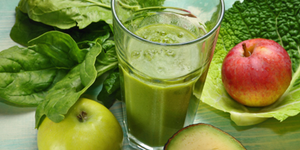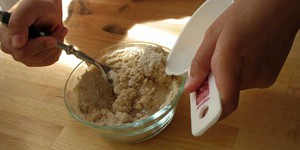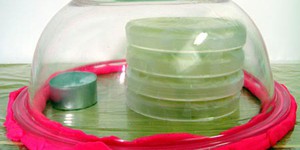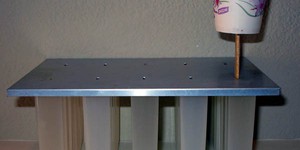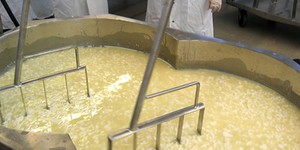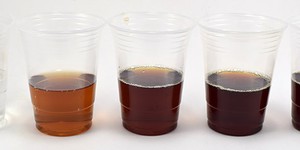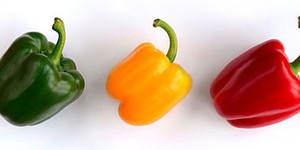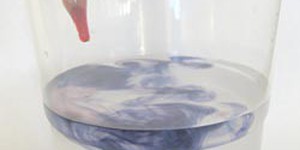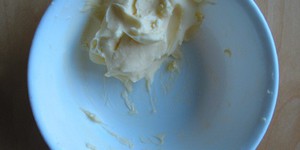Cooking & Food Science Science Projects (80 results)
Who doesn't love food? It's fun to make, it's fun to eat, it's fun to ...study? That's right! There is a lot of science that goes into the everyday foods that you love. Explore questions such as how baking ingredients work, how and why certain ingredients mix well together, and why people's tastes differ.
|
Select a resource
Sort by
|
Do you enjoy drinking smoothies packed full of berries and other tasty fruits? Or maybe you like drinking a creamy milkshake with peanut butter, chocolate, and bananas. Smoothies and milkshakes are often tasty to us because of the sugar in them. But did you know there are different kinds of sugar? Some ingredients in a smoothie can have more than one kind of sugar in them, and our bodies process each kind of sugar differently. In this science project, you will measure the concentration of…
Read more
Featured
Have you heard that garlic powder is supposed to inhibit the growth of bacteria? Which do you think would make a better disinfectant: a solution of garlic powder or a solution of bleach? This project shows you a straightforward way to compare the effectiveness of different disinfectants (or other antimicrobial agents), by measuring zones of inhibition on a culture plate.
Read more
Close your eyes for a moment and think about your favorite cake, pasta, and crusty bread. OK, you can open your eyes now, and please do not drool on your computer! What was the cake you pictured like? Was it light and fluffy? Did you imagine pasta with a silky, smooth texture? Was the bread you pictured wonderfully chewy? Did it give your jaws a workout? In this science fair project, you will explore an amazing substance in these foods, called gluten, and discover why these foods, all made from…
Read more
You know there is sugar in non-diet soda, but just how much sugar? Sure, you can look on the ingredients label, but how do food scientists actually measure the amount of sugar in a solution? They use a simple scientific device called a hydrometer. The hydrometer floats in the solution that is being tested, and the higher it floats, the more sugar there is! In this science fair project, you will use a precision hydrometer to measure the amount of sugar in soda.
Read more
Have you ever noticed that most yogurt containers say they contain "live cultures"? What does that mean? The label is suggesting that the yogurt has living bacteria in it! While some types of bacteria can make you sick, some are actually important to keep you healthy. But individual bacteria are so tiny that you cannot see one with the naked eye, so how can you tell if bacteria are really living in your yogurt? In this science fair project, you will investigate whether yogurt actually…
Read more
Gelatin! It's hard to think of another food that is used as frequently on the dinner table as off. You can find it in all sorts of sweet foods, from ice cream, yogurt, and gummy bears, to marshmallows and yellow colorings for sodas. Off the table, it shows up in glues, photographic paper, playing cards, crepe paper, medicine capsules, hair gels, and professional lighting equipment. From the kitchen to the theater—what a range of uses! In this cooking and food science fair project, you'll…
Read more
Have you ever gone to pour yourself a cup of milk and all you get is milk clumps? What happened to the milk is called coagulation, which is the mechanism that occurs when proteins in the milk clump together. While you do not necessarily want this in your milk, without coagulation (or curdling), there would not be any cheese or yogurt, which is why it is a very important process in the food industry. But what makes milk curdle? In this science project you will use pineapple juice to curdle milk…
Read more
A nice hot cup of tea sure can wake and warm you up in the morning. In this project, you will investigate the chemistry of tea. The longer you steep a tea bag in hot water, the stronger the tea will be. But how does the strength of the tea change with longer brewing time? In this project you will make a very simple electronic device to measure the strength of tea. The device will determine how strong the tea is by measuring the amount of light the tea absorbs.
Read more
Vitamin C is a water-soluble vitamin that has many functions in the body. Vitamin C is needed to bolster the immune system. It is an antioxidant that protects LDL cholesterol from oxidative damage, and it is needed to make collagen, a substance that strengthens many parts of the body, such as muscles and blood vessels. Our bodies do not make vitamin C, so we must get it from dietary sources. Citrus fruits, carrots, avocados, and spinach all have vitamin C. Bell peppers, like the ones shown in…
Read more
Have you ever noticed that the salt you are using says it is "iodized"?
Iodine is an important micronutrient, which means we need it in small quantities to be healthy. Because iodine is rare in many people's normal diets, it is added to table salt. Then when people salt their food, they are also adding this important micronutrient. In this food science project, you will use some kitchen-friendly chemistry to investigate which types of salt have iodine added (in the form of iodide) and which do…
Read more
Hot pancakes with butter running down the sides, freshly baked biscuits and pastries with butter, hot flaky potatoes with melted butter. Yum! It seems like everything tastes better when you add butter. But what is butter and how is it made? In this food science fair project, you will find out, and you will test different conditions for making butter and determine the best method.
Read more
|
Explore Our Science Videos
How Far Can a Sneeze Go?
Change the Reaction Rate of a Foaming Reaction
Delayed Release Pill Challenge


